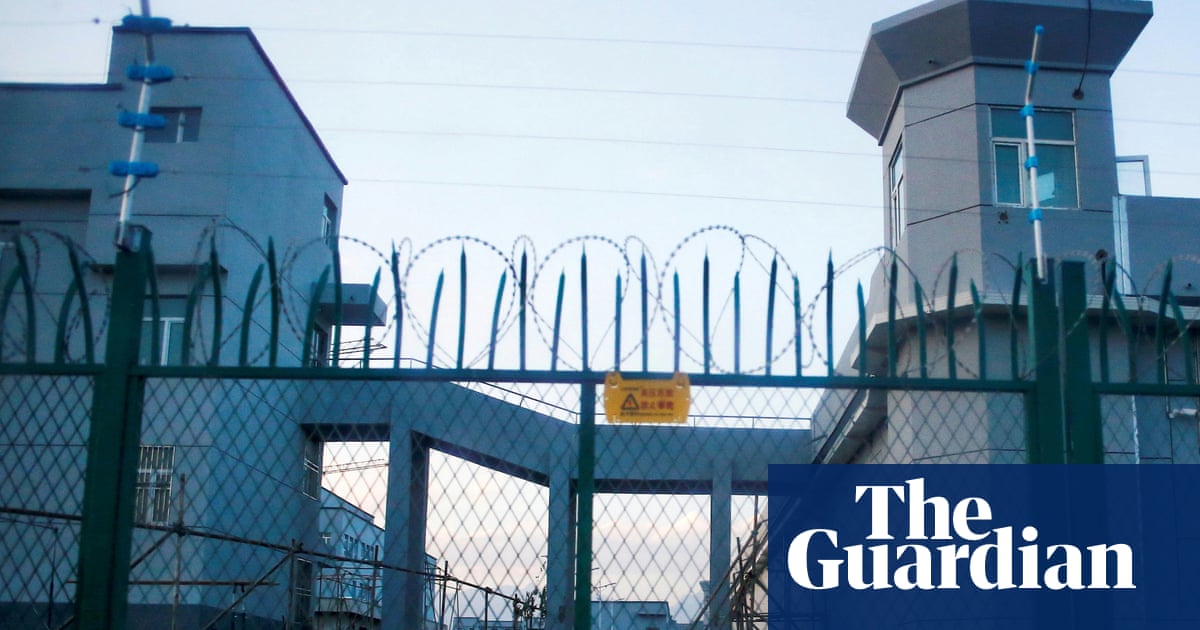
Canada has led more than 40 countries in expressing serious concerns over Beijing’s repressive actions in Xinjiang, Hong Kong and Tibet, prompting a furious response from Beijing over Canada’s colonial history.
The exchange at the UN human rights council on Tuesday marks the latest downturn in relations between Canada and China, which have deteriorated steadily as the two countries clash over human rights, trade and allegations of “hostage diplomacy”.
Canada urged China to allow “immediate, meaningful and unfettered access” so independent observers can visit its western Xinjiang region, where UN experts say nearly a million Uyghurs and other Turkic Muslims have been detained in camps.
“We are gravely concerned about the human rights situation in the Xinjiang Uyghur Autonomous Region,” Canada’s ambassador Leslie Norton said Tuesday. The joint statement – backed by Australia, Britain, France, Germany, Italy, Japan, Spain and the US – cited reports of torture or cruel, inhumane and degrading treatment or punishment, forced sterilization, sexual and gender-based violence, and forced separation of children from their parents.
China pre-empted the statement by attacking Canada’s colonial past – a move that reflected growing frustration over scrutiny of its Xinjiang policies, and its increasingly tense relationship with Canada.
Citing the recent discovery of what are believed to be the unmarked graves of 215 children at the site of a former residential school, Jiang Duan, a senior official at China’s mission to the UN in Geneva, called for a “thorough and impartial investigation” into Canada’s historical treatment of Indigenous peoples and compensation for victims.
Jiang’s statement was read out on behalf of Russia, Belarus, Iran, North Korea, Syria and Venezuela, all of which have been accused of wide-ranging human rights abuses.
“Historically, Canada robbed the Indigenous people of their land, killed them, and eradicated their culture,” the statement said.
Justin Trudeau said that Canada continued to have a deeply fractured relationship with Indigenous peoples – but he argued that Canada had taken steps to acknowledge past injustices.
“In Canada, we had a Truth and Reconciliation Commission. Where is China’s Truth and Reconciliation Commission?” said Trudeau. “Where is [China’s] truth?”
The commission concluded in 2015 that Canada had pursued a police of “cultural genocide” towards Indigenous people and recommended a string of actions to repair the damage. Seven years later, a majority of the commission’s 94 “calls to action” have gone unanswered.
In recent months, western countries have become increasingly bold in their criticism of China’s treatment of the Uyghur Muslim minority in the Xinjiang region. China denies mistreating the Uyghurs, saying the government is simply running vocational training centres aimed at countering extremism.
In February, Canadian parliament passed a motion declaring that China’s abuse of Muslim minorities constituted genocide. The British, Dutch and Lithuanian parliaments have all passed similar motions, and two successive American presidents have called the Chinese action a genocide.
“China is not recognizing there is even a problem. That is a pretty fundamental difference,” said Trudeau. “Where is the openness that Canada has always shown and the responsibility that Canada has taken for the terrible mistakes of the past … many of which continue into the present?”
Relations between China and Canada have remained tense for more than two years since the arrest on a US warrant of Huawei’s Meng Wanzhou in December 2018. Within days, two Canadian citizens – Michael Kovrig and Michael Spavor – were detained in China. In March, the men were subjected to secret court trials after more than two years in jail. Canada has described the men’s detention as “hostage diplomacy”.
China’s attacks on Canada’s colonial legacy mirror a similar strategy against the United States earlier this year, after calls for boycotts of Xinjiang cotton put China on the defensive amid accusations of forced labour.
Using historical photos of cotton fields in the American south, the foreign ministry spokesperson Hua Chunying told reporters in January that the United States had a far worse human rights record.
“Here is a picture of black slaves being forced to work in cotton fields in the US,” said Hua. “Here is another picture of cotton fields in China’s Xinjiang where more than 70% of the cotton is picked with machines. There is never ‘forced labor’ in picking cotton in Xinjiang.”
Stephanie Carvin, a professor of international affairs at Carleton University in Ottawa, said the Chinese response followed a tried and tested formula.
“This ‘what-about-ism’ is an authoritarian reflex,” she said. “And it’s not new. Canada faced criticism over its treatment over Indigenous people from the Soviet Union during the cold war. But it’s also important to recognize it for what it is- a strategy to deflect from meaningful criticism, which, in this case, is the treatment of Uyghurs in Xinjiang.”
https://www.theguardian.com/global-development/2021/jun/22/china-canada-relations-xinjiang-human-rights

